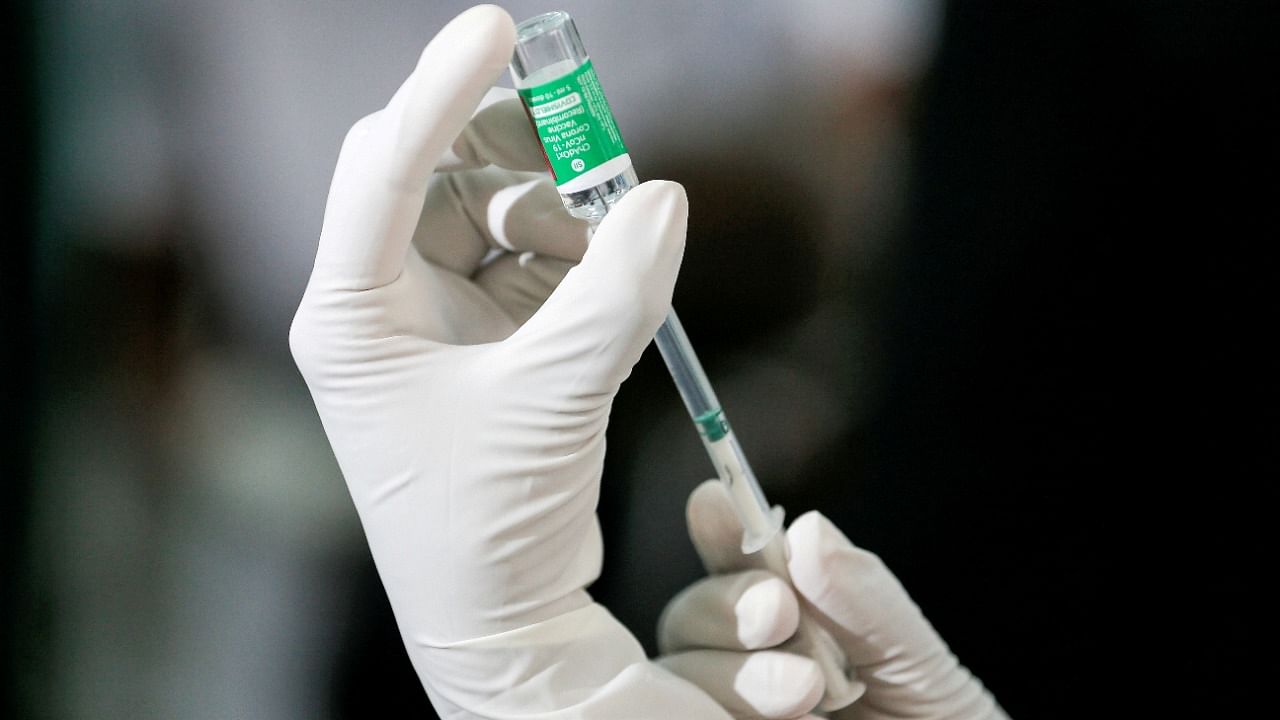
With the new variant already leaving people across the world fretting, low vaccination rates in developing countries is emerging as a major cause of concern. Omicron, the new variant of the Covid-19 emerging from the southern African region, has been classified as a "variant of concern" by the World Health Organization (WHO).
This variant (omicron) has a large number of mutations, some of which are concerning. Preliminary evidence suggests an increased risk of reinfection with this variant, as compared to other VoCs. The number of omicron cases is increasing in almost all provinces in South Africa.
“If you look at the mutations, omicron looks like a nasty one,” veteran scientist Gagandeep Kang, a professor at the Christian Medical College, Vellore told DH. “But we need more clinical information.”
Also Read — Covid-19: Scientists suggest looking for Omicron clusters, collecting more clinical data
Over 50 countries across the world have missed the target of vaccinating at least 10 per cent of their population by September, as recommended by the WHO. According to Our World in Data, most of the 50 countries that have missed their targets are in Africa, which has an average vaccination rate of 7 per cent, against the global average of 42 per cent.
Only 15 African countries have met the 10 per cent target by September, with over half of the countries in the continent having vaccinated lesser than 2 per cent of their population, according to a report by The Indian Express, analysing this data. Two countries did not have any vaccinations registered in the data. One of these, Burundi, launched its vaccination drive only in October while Eritrea is yet to roll out its vaccination programme.
“The majority of Africa’s health workers are still missing out on vaccines and remain dangerously exposed to severe Covid-19 infection. Unless our doctors, nurses and other frontline workers get full protection we risk a blowback in the efforts to curb this disease. We must ensure our health facilities are safe working environments,” Dr Matshidiso Moeti, WHO Regional Director for Africa, was quoted as saying, according to a press release.
One of the major reasons cited for the low vaccination numbers is that African countries relied on bilateral ties, donations and the COVAX scheme for vaccines. However, of the billion vaccines doses promised as donations, less than 15 per cent have been delivered, according to an analysis by Airfinity, a health data company.
Also Read — Germany, Italy report Omicron cases
Experts said that uneven vaccination rates in the world give the virus more hosts and more time to mutate, potentially paving the way for more dangerous mutations.
“Escaping from immunity is something that viruses do really well. If there are lots of populations that are still susceptible, we’re in the same kind of hamster wheel of this that we’ve been in before,” Ian Mackay, an associate professor of virology at the University of Queensland, told Bloomberg.
Speaking on the Omicron variant, Maria Van Kerkohove, Covid-19 Technical Lead at WHO, said in a statement: “This variant has been detected and reported to us by our colleagues in South Africa. There are fewer than 100 whole-genome sequences that are available. We do not know very much about this yet. What we do know is that his variant has a large number of mutations. And the concern is that when you have so many mutations, it can have an impact on how the virus behaves.”
Watch the latest DH Videos here: